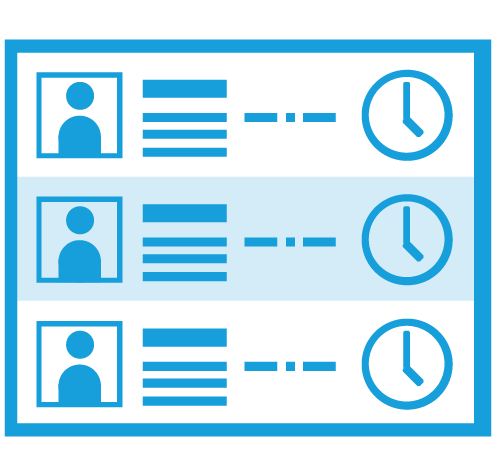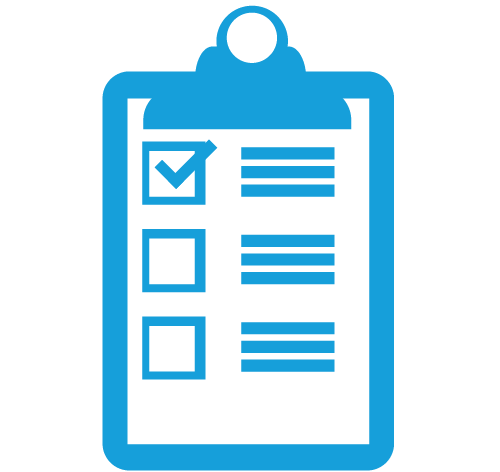Comparing Spoton Reserve with OpenTable, Tock, Resy & Yelp: A Comprehensive Guide
In the ever-evolving world of restaurant reservations, it’s crucial for both restaurateurs and diners to choose the right platform. Platforms like Spoton Reserve, OpenTable, Tock, Resy, and Yelp each offer a unique set of features that cater to different needs within the restaurant industry. This blog aims to provide a side-by-side comparison to help you determine which platform best fits your needs, whether you are a restaurateur or a frequent diner.
1. Spoton Reserve
Overview
Spoton Reserve is an all-in-one reservation and guest management platform designed for both large and small restaurants. Known for its modern design and ease of use, it provides a seamless experience for both customers and restaurant staff. Spoton focuses on streamlining the reservation process, improving guest relationships, and enhancing the overall dining experience.
Key Features
-
Reservation Management: Easy to use, with features like real-time availability, waitlist management, and customizable reservation rules.
-
CRM and Guest Data: Spoton Reserve integrates customer data into its platform, allowing for personalized experiences based on past visits, preferences, and feedback.
-
Reporting and Analytics: Provides in-depth reports to help restaurants understand key metrics like booking trends, guest behavior, and staffing needs.
-
Integration with Point of Sale (POS): Spoton seamlessly integrates with your restaurant’s POS, creating a more unified and efficient system.
Strengths
-
Easy to navigate and manage reservations.
-
Excellent customer relationship management (CRM) tools.
-
Detailed reporting and insights for better operational decisions.
Weaknesses
-
Lacks the same widespread market penetration as more established platforms like OpenTable.
-
Limited features for high-end, multi-location restaurants compared to platforms like Tock.
2. OpenTable
Overview
OpenTable is perhaps the most well-known reservation system in the market. It has been around for over two decades and has built a reputation for reliability and scalability. The platform serves a wide range of restaurants, from casual eateries to Michelin-starred establishments.
Key Features
-
Global Reach: OpenTable allows restaurants to reach millions of potential diners worldwide, with a large user base in North America and Europe.
-
Reservation Management: Offers a user-friendly reservation system, including waitlist management, availability alerts, and customization options.
-
Guest History: Track and manage customer preferences and dining history to offer personalized services.
-
Marketing Tools: OpenTable’s marketing tools allow restaurants to promote special events and offers directly to users.
-
Mobile App: Easy to use mobile app for diners, with seamless booking and instant reservation confirmations.
Strengths
-
Huge customer base and widespread use in the industry.
-
Excellent for restaurants looking to reach a global audience.
-
Robust reservation system with features for high-volume restaurants.
Weaknesses
-
Expensive subscription and per-cover fees, especially for smaller restaurants.
-
Customers often view OpenTable as a “reservation aggregator,” which may reduce the sense of brand loyalty for individual restaurants.
3. Tock
Overview
Tock offers a more sophisticated approach to reservations, catering to high-end and fine-dining restaurants. It goes beyond traditional reservations by providing the ability to sell tickets for dining experiences and special events. Tock is designed for restaurants looking to enhance their booking system with creative ways to offer exclusive experiences.
Key Features
-
Reservation and Ticketing System: Tock enables restaurants to sell tickets for events, special menus, or experiences in addition to traditional reservations.
-
Revenue-Boosting Tools: Offers dynamic pricing and other tools to maximize revenue, which is especially useful for fine-dining restaurants.
-
Customization: Provides highly customizable reservation pages and booking forms.
-
Waitlist Management: Allows restaurants to manage waitlists and overbookings more effectively.
-
Customer Relationship Management: Robust CRM features to track guest history, preferences, and past interactions.
Strengths
-
Great for high-end restaurants and those offering special experiences.
-
Dynamic pricing tools to maximize revenue.
-
Excellent for handling events and ticketed reservations.
Weaknesses
-
High fees, especially for restaurants that do not focus on high-ticket experiences.
-
Less accessible for casual dining compared to other platforms.
4. Resy
Overview
Resy offers a modern, user-friendly platform that’s popular with both independent restaurants and large chains. Resy’s standout feature is its ability to provide both reservation and customer relationship management in one place, making it a favorite for restaurateurs who prioritize customer service.
Key Features
-
Reservation Management: A comprehensive system for managing reservations, waitlists, and availability.
-
Customer Management: Resy’s CRM tools help restaurants track guest information, preferences, and even special occasions.
-
Dynamic Pricing: Allows for pricing flexibility based on demand and other factors.
-
Marketing Tools: Offers features to help restaurants promote events and special offers to diners.
-
Mobile App: Provides an intuitive app for diners, with real-time availability and easy reservations.
Strengths
-
Great for independent restaurants and casual fine dining.
-
Flexible pricing and availability.
-
Strong customer support and user interface.
Weaknesses
-
Still not as widespread or recognized as OpenTable.
-
Limited to certain geographic regions, which may not make it ideal for global expansion.
5. Yelp
Overview
Yelp is a more general-purpose platform, primarily known for user reviews and business listings. However, it also includes a reservation feature that integrates with various reservation systems, including OpenTable and Resy. While Yelp’s primary focus is on reviews and recommendations, it still offers tools for diners to make reservations directly on the platform.
Key Features
-
Reservation Integration: Integrates with OpenTable, Resy, and other reservation systems to offer diners an easy way to book.
-
User Reviews: Provides extensive user-generated reviews and ratings to help diners make informed decisions.
-
Business Listings: Helps restaurants maintain their online presence with detailed profiles, photos, menus, and hours of operation.
-
Advertising and Promotions: Yelp allows businesses to advertise on the platform, increasing visibility among potential diners.
Strengths
-
Extensive user reviews and ratings help diners make informed decisions.
-
Widely used for restaurant discovery.
-
A great tool for restaurants to build an online reputation.
Weaknesses
-
Does not offer a standalone reservation system, relying on integrations.
-
Yelp reviews can be unpredictable, and negative reviews can significantly impact business.
Conclusion
When comparing Spoton Reserve, OpenTable, Tock, Resy, and Yelp, each platform brings something unique to the table.
-
Spoton Reserve is a great choice for restaurants looking for a straightforward, all-in-one platform with strong CRM and reporting features.
-
OpenTable is ideal for those looking to reach a global audience, with a reliable reservation system and excellent marketing tools.
-
Tock is perfect for high-end and fine-dining restaurants that want to incorporate ticketing and event management into their reservation system.
-
Resy stands out for its flexibility, strong customer relationship tools, and ease of use for casual and independent restaurants.
-
Yelp is an excellent platform for those seeking user-generated reviews and an integrated reservation system through third-party providers.
Choosing the right platform depends on your specific needs—whether you are a fine-dining restaurant, a casual eatery, or looking to enhance your customer relationships. Each system has its own set of strengths, and understanding these will ensure you make the best decision for your restaurant



















Sign Up for our Newsletter